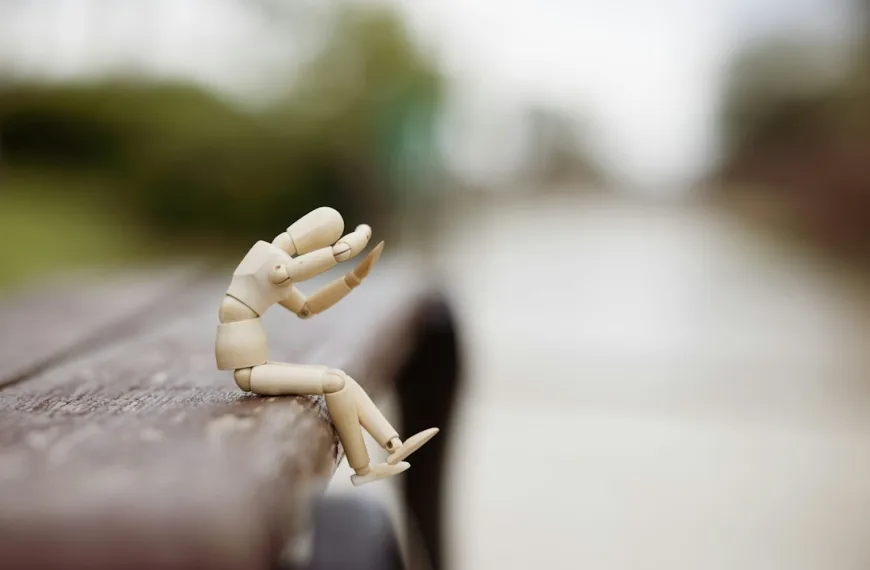Human beings have always been drawn to festivals and celebrations, eagerly anticipating the subsequent possibility to come jointly and rejoice. But have you ever stopped to ask yourself why we are so fascinated by these events? This article explores the psychology behind our love for festivals and their significance in our lives. If you’ve ever questioned the attraction of festivals, this article is for you. Get prepared to unlock the mysteries of our festive spirit
Festivals are cultural occasions that carry folks jointly to celebrate traditions, art, music, and group. These occasions are often held yearly and attract huge crowds, offering a platform for people to share their passions, interests, and heritage. They create a sense of belonging, excitement, and joy
Festivals. can focus on a particular region, religion, or theme, such as music, film, food, or literature, and supply a vibrant surroundings for folks to immerse themselves in completely different experiences and create unforgettable memories
One. effective illustration of the effect of festivals is the annual Burning Man event in Nevada, where members gather to exhibit themselves, foster creativity, and embrace communal values
Festivals have become an integral half of our society, bringing folks jointly to celebrate and indulge in different actions. But what exactly qualifies as a festival? In this section, we will discover the completely different varieties of festivals that exist, each with its own unique function and sights. From cultural festivals that showcase traditions and heritage, to music festivals that carry jointly numerous genres and artists, to meals festivals that tantalize our style buds, and devout festivals that honor religious beliefs and practices – there is a specific thing for every body to get pleasure from and appreciate
1. Cultural Festivals
Cultural festivals are vibrant and numerous celebrations that showcase the traditions, customs, and heritage of a particular tradition. To make the most out of these festivals, examine the following steps:
Research: Learn about the festival’s significance, history, and activities
Immerse. yourself: Engage in cultural performances, exhibitions, and traditional rituals
Try. traditional food: Savor the flavors of the tradition by sampling their traditional cuisine
Interact. with locals: Connect with folks from the tradition to gain deeper insights and forge meaningful connections
Participate. in workshops: Join workshops to study traditional crafts, dances, or musical instruments
Dress. the part: Wear traditional apparel to totally immerse your self in the cultural experience
Capture. memories: Take pictures and movies to create lasting stories of your cultural pageant experience
By. following these steps, you can totally embrace the richness and elegance of cultural festivals
2. Music Festivals
Music festivals are vibrant and thrilling occasions that carry jointly music lovers from all walks of life. When attending a music festival, there are several steps you can take to improve your experience:
Research the lineup: Before the festival, familiarize your self with the artists performing to prioritize your must-see acts
Create. a schedule: Plan your day by mapping out the efficiency instances of your favorite artists to keep away from lacking any sets at these vigorous events
Pack. essentials: Remember to carry sunscreen, cozy shoes, earplugs, and a reusable water bottle to keep hydrated and totally get pleasure from the music
Stay. connected: Download the pageant app to receive updates, find stages, and uncover hidden gems to make the most of your time at these vigorous events
By. following these steps, you can maximize your enjoyment at music festivals and create stories that will final a lifetime. Make certain to embrace the energy, connect with fellow festival-goers, and let the music take you on a journey
3. Food Festivals
Food festivals are a delightful method to discover numerous cuisines and culinary experiences. To make the most out of these events, follow these steps:
Research: Look for upcoming meals festivals in your region and find out the collaborating distributors and their specialties
Plan. Ahead: Create an itinerary of the meals stalls you want to go to and the dishes you want to try
Come. Hungry: Arrive at the pageant with an empty stomach to totally indulge in the extensive range of offerings
Try. New Things: Step out of your consolation zone and sample dishes you haven’t tried before, embracing the possibility to extend your palate
Engage. with Vendors: Interact with the cooks and distributors to study extra about the dishes, ingredients, and cooking techniques
Stay. Hydrated: Drink a lot of water to keep hydrated all through the meals festival
Take. Breaks: Pace your self and take breaks between indulging in completely different dishes to keep away from feeling overwhelmed
Enjoy. the Atmosphere: Immerse your self in the vigorous atmosphere, having fun with the music, entertainment, and vibrant meals displays
4. Religious Festivals
Religious festivals are of nice cultural and religious value to communities all round the world. These celebrations contain different rituals, traditions, and communal gatherings, strengthening religion and promoting a sense of unity between believers. Some examples of devout festivals contain Easter, Diwali, Eid al-Fitr, and Hanukkah. These occasions provide people with opportunities to connect with their devout identity, search blessings, and participate in shared customs
One. remarkable illustration that showcases the power of devout festivals is the annual Kumbh Mela in India, where hundreds of thousands of Hindus come jointly to bathe in sacred rivers, renew their spirituality, and experience a deep sense of devotion and camaraderie
Festivals hold a special place in our hearts and have been an integral half of human tradition for centuries. But what is it about festivals that make us love them so much? In this section, we will discover the different causes behind our fascination with festivals. From the sense of group they provide to the possibility for self-expression and escapism, festivals supply a multitude of advantages that preserve us coming back yr after yr. Additionally, we will also look at how festivals let us to celebrate and protect our numerous cultures and traditions
1. Sense of Community
A sense of group is one of the leading causes why festivals are beloved by folks. To totally experience this aspect, follow these steps:
Engage in conversations with different festival-goers, promoting a sense of belonging
Participate. in group actions and workshops, such as group artwork initiatives or collective cooking sessions
Join. in communal rituals or ceremonies that celebrate shared values and traditions
Volunteer. or contribute to the pageant organization, strengthening bonds with the community
Festivals. have been bringing communities jointly for centuries. In historic times, harvest festivals have been held to exhibit gratitude for a bountiful yr. These celebrations concerned communal feasts, music, and dances, fostering a sense of unity between the people
2. Opportunity for Self-Expression
Opportunities for self-expression at festivals let people to freely showcase their creativity and unique identification. To totally embrace this experience, examine the following tips:
Experiment with your style: Use the pageant as a probability to attempt out completely different costumes, daring accessories, or unique hairstyles that exhibit your personality
Participate. in interactive artwork installations: Engage with displays that encourage self-expression and let you to contribute to the artwork
Join. workshops and classes: Attend creative workshops, such as painting, dancing, or crafting, to study new expertise and exhibit your self by way of different artistic mediums
Perform. or showcase your talent: Take half in open mic sessions, street performances, or artwork showcases to share your abilities and passions with others
Remember,. festivals are a platform for you to freely exhibit yourself, so seize the possibility and let your creativity shine!
3. Escapism
Escapism is one of the leading causes why folks are drawn to festivals. These occasions supply a transitority escape from the daily stresses and routines of life. They provide a much-needed break from work, responsibilities, and the mundane, allowing people to totally immerse themselves in a world of excitement and leisure. Whether it’s by way of music, art, or different kinds of creative expression, festivals create a house where folks can let go and indulge in their passions
To. totally get pleasure from festivals, here are some suggestions:
Immerse your self in the experience
Take. breaks and relaxation when necessary
Disconnect. from know-how and be totally present in the moment
Engage. with others and kind connections
4. Celebration of Culture and Tradition
The celebration of tradition and tradition plays an necessary role in bringing communities jointly during festivals. These occasions provide a platform for folks to screen their unique cultural practices, rituals, music, dance, and traditional food. They also supply people the probability to connect with their heritage and protect their cultural identity
Festivals. let for the passing down of traditions from one new release to another, ensuring their continuity. By celebrating tradition and tradition, festivals foster a sense of pride, belonging, and unity between participants, promoting cultural variety and mutual understanding
The festive atmosphere, vigorous music, and vibrant energy – there’s a specific thing magical about festivals that captures our hearts and leaves us wanting extra. But have you ever questioned why we love festivals so much? In this section, we will discover the psychological results of festivals on our minds and feelings. From the pleasure and excitement they carry to the sense of group and belonging they foster, we’ll delve into the different ways in which festivals effect our psychology. Get prepared to uncover the power of festivals and why they hold such a special place in our hearts
1. Positive Emotions
Experiencing confident feelings is one of the leading causes why folks love festivals. These feelings can be enhanced by following a few steps:
Immerse your self in the surroundings and embrace the festive spirit
Engage. in actions that carry you joy, like dancing to your favorite music or collaborating in fun games
Connect. with others and construct new relationships to create a sense of belonging and camaraderie
Take. the time to recognize the elegance and creativity of the festival, such as the colorful decorations or beautiful performances
By. consciously cultivating confident feelings during festivals, you can make the most out of your experience and create lasting memories
2. Increased Social Connections
Increased social connections at festivals can be a great experience. Here are some steps to improve your social interactions:
Attend pageant occasions and actions that encourage interaction, such as workshops or group performances
Join. or create online communities committed to the pageant to connect with fellow attendees earlier than and after the event
Engage. in conversations with those round you, no matter if it’s discussing shared pursuits or simply hanging up a pleasant chat
Participate. in group actions like games, dances, or collaborative artwork projects
Remember,. festivals are a nice possibility to meet new folks and forge lasting connections. Embrace the spirit of camaraderie and open your self up to new experiences
3. Enhanced Well-Being
Enhanced well-being is a significant gain of attending festivals. To make the most out of this experience, follow these steps:
Engage in actions that promote rest and stress reduction, such as yoga or meditation
Take. breaks and prioritize self-care to keep away from burnout
Connect. with nature by collaborating in backyard actions or attending festivals in scenic locations
Immerse. your self in the music and art, allowing your self to totally experience the confident feelings and energy present
Historically,. festivals have been celebrated as a method to honor deities, mark seasonal changes, and unite communities. The tradition of coming jointly to celebrate has developed over time, but the intention to improve well-being stays a constant thread
4. Sense of Belonging
Festivals provide a powerful sense of belonging by connecting people by way of shared experiences and traditions
Social. connection: By bringing folks together, festivals foster a sense of group and create bonds between attendees
Shared. identity: Festivals celebrate tradition and tradition, reinforcing a collective identification between participants
Emotional. support: Being half of a larger group at festivals can provide emotional support and a sense of belonging
Belonging:. Festivals supply opportunities to connect with others who share similar interests, values, and experiences, additional enhancing a sense of belonging
Pro-tip:. To totally embrace your sense of belonging at festivals, actively participate in activities, interact in conversations, and embrace the spirit of community
While festivals are often seen as joyous and celebratory events, it is central to also examine their potential damaging results. In this section, we will discuss the different ways in which festivals can have a damaging effect on people and society as a entire. From financial strain to substance abuse, overcrowding and safe practices concerns, and environmental impact, there are several potential downsides to the pageant experience that we will discover in extra aspect. By acknowledging these issues, we can work towards creating extra in charge and sustainable pageant practices
1. Financial Strain
Financial strain is a frequent concern when attending festivals. To alleviate this, examine the following steps:
Create a budget: Determine how much you can afford to spend on tickets, food, and merchandise
Research. ticket options: Look for early fowl rate reductions or group charges to save money
Pack. your own meals and drinks: Bringing snacks and water bottles can support save on high priced vendor prices
Set. spending limits: Decide on a optimum volume you’re keen to spend on souvenirs or different pageant expenses
Pro-tip:. Consider carpooling or sharing lodgings with pals to cut up the costs and decrease fees even further
2. Substance Abuse
Substance abuse can be a concern at festivals, but there are steps you can take to keep safe and get pleasure from the experience responsibly:
Set limits: Determine in advance how much alcohol or different substances you will consume
Stay. hydrated: Drink a lot of water to prevent dehydration and minimize the results of substance abuse
Know. your limits: Be aware of how substance abuse affects you and keep away from overindulgence
Stay. with a group: Surround your self with pals who can support monitor your well-being
Remember,. festivals are meant to be interesting experiences, and in charge substance use can support make sure a confident and memorable time for every body involved
3. Overcrowding and Safety Concerns
Overcrowding and safe practices worries are central elements to preserve in intellect when attending festivals. To make sure a safe and interesting experience, follow these steps:
Arrive early to keep away from huge crowds and long queues
Stay. aware of your environment and preserve your belongings secure
Follow. the directions of pageant staff and safety personnel
Stay. hydrated and take breaks to rest, especially in hot weather
Plan. an emergency meeting point in case you get separated from your group
Be. aware of individual house and respect others’ boundaries
Report. any suspicious activity or potential safe practices hazards to pageant authorities
Follow. designated pathways and keep away from overcrowded areas
4. Environmental Impact
The environmental effect of festivals is a crucial consideration. Here are some ways festivals can have an environmental impact:
Waste generation: Festivals often produce a significant volume of waste, including meals containers, plastic bottles, and different single-use items
Energy. consumption: Large-scale festivals require a enormous volume of energy for stages, lighting, and sound systems, contributing to carbon emissions
Water. usage: Festivals that span multiple days eat huge portions of water for sanitation, meals preparation, and drinking, putting strain on neighborhood water resources
Pollution:. Noise pollution, air pollution from generators, and the release of dangerous substances into the surroundings are potential damaging results of festivals
To. mitigate these impacts, pageant organizers can implement sustainable practices such as waste recycling, energy-efficient technology, water conservation, and promoting eco-friendly transportation possibilities for attendees
Festivals are a beloved and cherished half of many cultures, providing a unique and thrilling experience for attendees. However, attending a pageant can also be overwhelming and exhausting if not approached with intention and preparation. In this section, we will discuss how to make the most out of festivals by implementing a few key approaches. From planning forward to staying hydrated and training mindfulness, we will discover ways to totally immerse oneself in the pageant experience and connect with others along the way
1. Plan Ahead
Planning forward is crucial to make sure a smooth and interesting pageant experience. Here are some steps to follow when getting ready for a festival:
Research the festival: Gather information about the festival’s lineup, schedule, and rules
Buy. tickets in advance: Secure your tickets early to keep away from disappointment and potential value increases
Check. the weather: Stay up to date on the weather forecast to pack acceptable garments and essentials
Create. a schedule: Plan which performances or actions you want to attend to maximize your experience
Pack. essentials: Bring needs such as sunscreen, water, snacks, cozy footwear, and a portable charger
Arrange. transportation and accommodation: Book your tour and accommodation in advance to keep away from last-minute hassles
Coordinate. with friends: Coordinate with your group to make sure every body is on the similar web page regarding meeting factors and activities
Stay. informed: Follow the festival’s social media channels and official web site for updates and central announcements
By. following these steps and planning ahead, you can minimize stress and make the most out of your pageant experience
2. Stay Hydrated and Rested
To totally get pleasure from festivals, it is crucial to prioritize staying hydrated and well-rested. Here are some steps to follow:
Drink a lot of water all through the day to keep hydrated and prevent dehydration
Take. breaks and find a quiet spot to rest, relax, and recharge your energy
Pace. your self and keep away from overexertion to prevent exhaustion or burnout
Plan. your schedule wisely, allowing time for relaxation and hydration between activities
Remember,. festivals can be bodily demanding, and taking care of your hydration and relaxation wants is necessary for an interesting experience. So, bear in mind to keep hydrated, take breaks, and prioritize your well-being for a memorable time at the festival!
3. Practice Mindfulness
To practice mindfulness at festivals, follow these steps:
Find a quiet spot: Take a break from the festivities and find a peaceable region where you can relax and focus on the present moment
Deep. breathing: Take slow, deep breaths to calm your intellect and carry your consideration to your breath
Grounding. exercises: Connect with your environment by feeling the earth beneath your feet or focusing on the sounds and smells round you
Engage. your senses: Pay consideration to the sights, sounds, tastes, and textures of the pageant experience, totally immersing your self in the present moment
Mindfulness. has been practiced for centuries, originating from historic Buddhist teachings. It has gained attractiveness in latest years due to its several advantages for psychological future health and well-being. Incorporating mindfulness into festivals can improve the total experience and support people find interior peace amidst the excitement and chaos. So, make certain to practice mindfulness at festivals to totally immerse your self in the present second and find interior peace
4. Connect with Others
Connecting with others is an central aspect of festivals, as they provide opportunities for social interplay and constructing relationships. To make the most out of this aspect, examine the following steps:
Engage in group activities: Participate in group games, workshops, or performances to connect with like-minded individuals
Join. online communities: Engage with festival-goers by way of social media teams and forums to connect before, during, and after the event
Attend. meetups or networking events: Take virtue of organized gatherings to meet new folks and extend your social circle
Volunteer. or collaborate: Contribute your expertise and time by volunteering or collaborating with others, fostering a sense of camaraderie and teamwork
By. actively connecting with others at festivals, you can improve your total experience and create lasting connections
What is the psychology behind our love for festivals?
The psychology of festivals is a complicated blend of different elements such as social influence, individual motivations, and cultural traditions. It is the consequence of our innate need for social connection, the desire for novel experiences, and the drive to belong to a group or community
How. do festivals effect our psychological well-being?
Festivals can have a confident effect on our psychological well-being by offering a sense of belonging and social support, fostering confident feelings and creating a break from daily routines. However, excessive pageant consumption and strain to participate can also lead to stress and burnout
Why. do we really feel a sense of group during festivals?
Festivals are a kind of collective celebration that creates a feeling of unity and belonging between people. The shared experience of music, food, and actions can create a sense of connection and construct a group where folks really feel accepted and included
What. role do cultural traditions play in our love for festivals?
Cultural traditions associated with specific festivals can have a significant effect on our love for them. These traditions are an integral half of our identification and provide a sense of heritage, belonging, and continuity. They also serve as a method to preserve and strengthen cultural values and beliefs
How. do festivals affect our emotions?
Festivals can evoke a variety of emotions, from excitement and pleasure to nostalgia and unhappiness. The atmosphere, music, and actions can set off stories and associations, main to a heightened emotional experience. Festivals can also serve as a method to release pent-up feelings and provide an outlet for self-expression
Can. festivals have a damaging effect on our psychological health?
While festivals can have many confident results on our psychological well-being, they can also have a damaging effect. The constant strain to participate, the worry of lacking out, and the excessive consumption of alcohol or medication can lead to stress, anxiety, and different psychological future health issues. It is central to find a stability and prioritize self-care during festivals
.







